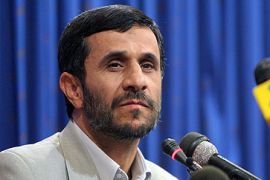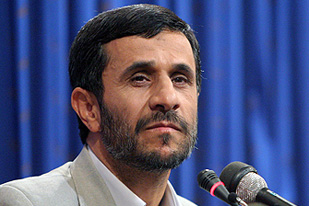Why the West needs Ahmadinejad
Rageh Omaar on why the West needs the Iranian leader

 |
| Ahmadinejad commands respect, even from those who do not agree with him |
A year is a long time in Iranian politics.
Twelve months ago, Mahmoud Ahmadinejad, the Iranian president, was branded a hardliner by Washington – a religious zealot, and a direct threat to Israel.
Now he is seen as essential to helping George Bush and Tony Blair out of the policy disaster in Iraq.
What is it about him and his government that the American president and British prime minister got so wrong?
Austere leader
Ahmedinejad lectured at a prestigious university in Tehran, teaching civil engineering.
He is still technically a member of the faculty. His office remains untouched, should he wish to return.
You would know that it was Dr Ahmadinejad’s office only by its austerity and religious symbols.
| Your Views |
Students and colleagues, even those who do not agree with his politics, say they respect him.
Ahmadinejad represents a crucial break in Iranian politics – he is the first post-revolutionary who is not a cleric, he fought in the Iran-Iraq war, and crucially he is seen as not being corrupt.
If the West has underestimated his government’s influence in Iraq and the region, they have also exaggerated his vulnerability here in Iran.
So it is hardly surprising that most ordinary Iranians are not hugely interested in Tony Blair’s comments on Iraq, especially as he has said Iran would have to give up its nuclear enrichment programme before any talks – something every Iranian leader has said will not happen.
People here feel that when it comes to Iraq and even Lebanon and Afghanistan, Britain and the US need them, not the other way round.
What they want to know is what benefits does Iran get for such assistance?